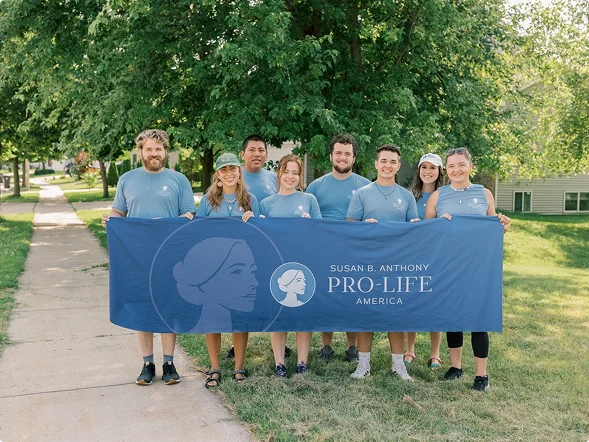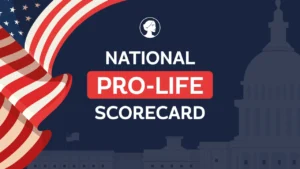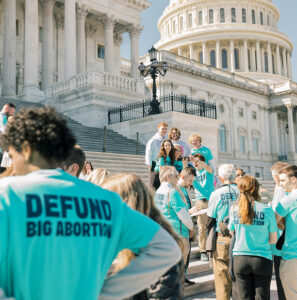
There were several headlines out of Florida last week as the Financial Impact Estimating Conference (FIEC) issued a decision regarding the pro-abortion Amendment 4 that will be on the ballot in November. Some of those headlines used the text of a press release from amendment proponents calling the panel’s conclusion a “dirty trick.”
So what exactly happened?
First, some background: In Florida, any amendment that will appear on the ballot must also have a “financial impact” statement attached to it. That means, voters are to be informed whether an amendment will impact them negatively (cost the taxpayer), positively (save the taxpayer) or indeterminate (neutral). This determination is made by the FIEC and their finding is printed on the ballot in November.
Back in November, the FIEC met to discuss Amendment 4 and assign the fiscal impact statement. SBA Pro-Life America’s State Policy Director Katie Glenn Daniel was the only voice on the pro-life side to testify at that hearing, telling the board about the immeasurable cost of litigation that will ensue from the amendment passing (such as what Michigan and Ohio are experiencing) and the potential for taxpayer funding of abortions should this amendment pass. The other side made argued that fewer people cost the state less money, and, that tourism into the state for abortions increases sales tax revenue. After this hearing, the FIEC concluded that the financial impact could not be determined.
Months later, the Florida Supreme Court upheld the 15-week protection law, thus allowing the heartbeat law to take effect in the state. The ACLU argued that the FIEC needed to reconvene and give a new assessment on the financial impact because the state is now operating under a different law. The FIEC granted this, and on July 1, convened a second series of these meetings. The ACLU tried to make the same case as before, but it became clear early on, due to more input from experts including CLI Associate Scholar Dr. Michael New, that they were not going to win the argument that more abortions is good for the taxpayer. In fact, the ACLU retreated to say that the FIEC should maintain their initial determination of “indeterminate.”
This week, the committee issued their final conclusion. While they retained the bottom line of “indeterminate,” they supported their conclusion by adding a description that this amendment will lead to many more abortions, and that there is a possibility of taxpayer funded abortions via Medicaid if this amendment passes.
The decision is an embarrassing loss for the ACLU which brought on the retrial themselves with their request for another review. As pro-life groups try to sound the alarm on the deceptive language used in the amendment to confuse voters, this new description will provide some clarity on the actual outcomes the measure will cause.
Add Your Name to Say You Stand for LIFE

When the U.S. Supreme Court overturned Roe v. Wade, our movement was given a historic opportunity. But the battle for life became much more difficult.
Add your name with thousands of others who are committed to protecting mothers the right to life for innocent unborn children.
Add My Name


















